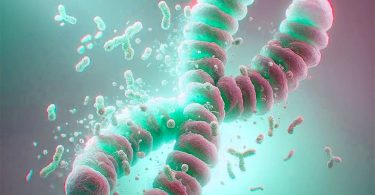Endogenous AGEs, produced in the body on contact with sugar, are more dangerous than exogenous AGEs, contained in food.
Glycation is a chemical reaction resulting from the binding of sugars to proteins. It generates AGEs (Advanced Glycation Endproducts), toxic compounds that are a major cause of aging.
There are 2 types of AGEs:
Endogenous AGEs, produced by the body through the consumption of sugars. For example, refined sugar, fructose in fruit juices and glucose in flour…
Exogenous AGEs, produced when sugar-containing foods are cooked and then ingested. Examples include pastries, barbecues…
Exogenous AGEs are particularly toxic, and are often associated with other toxic compounds found in junk food. But, unlike some of these other toxic compounds, they are largely eliminated by the digestive system. Their sole contribution to certain age-related diseases seems limited.
For example, a study of a cohort of 6,275 participants found no association between high consumption of exogenous AGEs and poor glucose metabolism (1).
On the other hand, endogenous AGEs, because they are produced continuously at the heart of the body, fed silently by sugar, without any defense mechanism, are the common soil for many signs of aging and age-related diseases.
And this is why breadcrumbs, rich in the sugar that generates endogenous AGEs, are more dangerous for aging than bread crusts, which contain exogenous AGEs that are largely eliminated by the digestive system!
© AGE Breaker, updated 10 2023
[Glycation is one of the major causes of aging. Resulting from the fixation of sugars on the proteins constituting the organism, glycation generates toxic compounds that cause cellular aging. Glycation is particularly involved in metabolic disorders, skin aging and cognitive decline.] [AGE Breaker, patented nutritional supplements, based on rosmarinic acid, recognized by aging specialists around the world for their properties to reverse the effects of glycation.]More on www.agebreaker.com
#agebreaker #glycation #antiaging #longevitymedicine #preventivemedicine #preventivehealth #skinaging #4pmedicine #advancedglycationendproducts
(1) : Linkens, A. (2022). The Impact Of Dietary Advanced Glycation Endproducts: Relevance To Glucose Metabolism, Vascular Function, And Gut Microbiota. [Doctoral Thesis, Maastricht University]. The Maastricht Study 2022.









